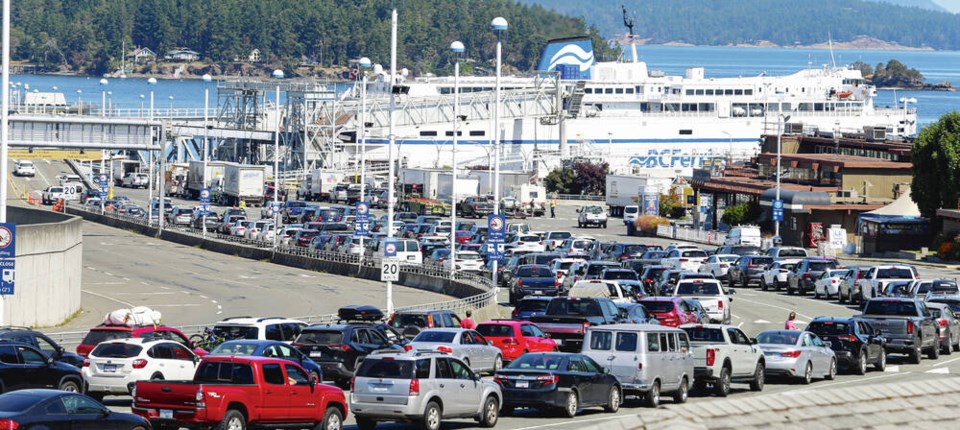The language in a new bill that will govern B.C. Ferries is mostly the neutral legalese typical of all legislation.
But decoded into plain English (with a dose of translator’s discretion), it reads as a remarkably blunt power play aimed at jerking the quasi-independent corporation back under something close to direct government control.
The NDP government has stopped itself from just declaring the outfit a Crown corporation, which would be their first preference, if it wasn’t so expensive. Instead, it’s redesigned the lines of authority, based on a simmering mistrust of the corporation that persisted even after the NDP replaced some appointees of the previous government.
Most of the power will be stripped from the company’s board of directors and handed to a little-noticed oversight board, the B.C. Ferry Authority.
Politicians have been tinkering with the governance structure ever since the B.C. Liberals divested B.C. Ferries from government and set it up as publicly owned but privately managed corporation, “free from political interference.”
The change was driven by the lesson of the fast ferries fiasco, where NDP politicians of the 1990s made the call to spend hundreds of millions of dollars on three aluminum catamarans that were going to revolutionize the service. They didn’t work and had to be abandoned (by the NDP government itself, it should be noted.)
The curious, confusing new structure held for a few years, but even the Liberals couldn’t resist meddling again when B.C. Ferries became controversial. The first-term NDP continued the tinkering by ordering fare freezes and service levels to meet popular demand. But the new bill goes far beyond that. The few brief sections neutralize the B.C. Ferries board of directors and give the final say on virtually everything to the one-step-removed B.C. Ferry Authority board.
Some of the changes are arcane, but send a clear message.
For example, current law says the corporation must provide to the authority any information it decides it needs. The new law adds “within the time period specified by the authority.”
In other words: “Give us whatever we want. And do it stat.”
The current law describes the B.C. Ferry Authority as the sole voting shareholder of the ferries corporation “and is to oversee the strategic direction in support of the public interest, including the public’s interest in safe, reliable and affordable coastal ferry services in British Columbia.”
Broad-brush, big picture oversight, in other words.
The new bill adds a few dramatic details. The authority board of directors will be able to pass resolutions that declare any aspect of the ferry service a public interest, then issue binding directions to B.C. Ferries (which is also known as B.C. Ferry Services or BCFS).
Just to be clear, “BCFS must comply with any direction issued … ensure its business plan takes the resolution into account and ensure its annual report … describes the actions BCFS took.”
To paraphrase the new instructions to B.C. Ferries: “When the authority says ‘jump,’ you not only jump, you report the jump publicly.”
Another example of the war games being played in this little governance adjustment: The bill states “a director of the BCFS is removed as, and ceases to be, a director on the passing of a resolution to that effect by the authority.”
In plain English, the authority can fire B.C. Ferries directors at will.
One clause in the bill zeroes in on the touchy topic of executive compensation. The current law gives the authority a detailed mandate to govern B.C. Ferries executive compensation, which tops out at more than a half-million dollars for veteran CEO Mark Collins. The new bill adds a requirement that the executive compensation plan be referred to the Public Sector Employers’ Council, an agency that coordinates compensation plans across the entire public sector.
It’s another level of regulation and scrutiny on how much the top earners at B.C. Ferries make, at a time when experienced marine executives are in short supply.
Subject to a full explanation, the first question about the new arrangement is: What’s the point of having two boards, when one will have all the power?
Taxpayers will wind up getting one real board for the price of two. And they don’t come cheap. The 11-member B.C. Ferries board and nine-member B.C. Ferry Authority board earn healthy stipends. It was weird before. It’s even weirder now.
Transportation Minister Rob Fleming’s bland introduction said it “will provide the tools for the B.C. Ferry Authority to best represent the public interest.”
There’s a lot more to it than that.
To comment on this article, write a letter to the editor: [email protected]




